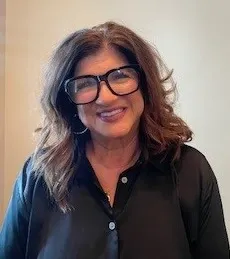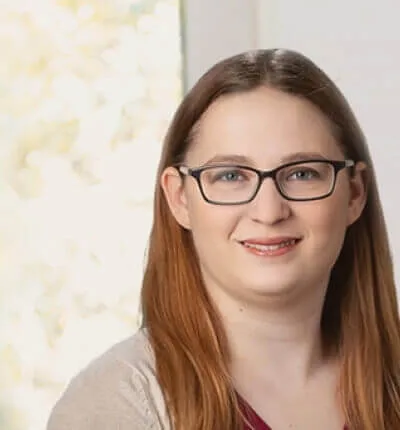David Schultz, Online ABSN
Why did you choose nursing as your third career?
I heard a quote that I've lived by for a while now and it was, "Be ashamed to die until you've done something for humanity." So, joining the military and being of service, and then getting out and just deciding that healthcare is the ultimate service to others—that's why I made nursing what I wanted to do.
I had a lot of people throughout my life tell me that I have a caring personality, and I'm more of a healer in a lot of situations. I like being hands-on with things... just having that mix with being able to talk to patients, talk to family members, help meet their needs, help them find resources. I think that was very important to me.
Why did you choose Elmhurst for your ABSN?
I looked at a few different universities and Elmhurst gave me the option to do an accelerated distance learning program. With that, it kind of gave me the options to pick and choose how to break up my day. It was nice to have the option of, "Okay, I can work on this homework all morning and then I can take a break, and then I can do some personal stuff... still have that school-life balance," if you will. That was one of the biggest things for me.
Then, why I chose Elmhurst over other universities I got into was just having a smaller class size. [That] was very important because I wanted to be able to have a better connection with my instructors and classmates.
How would you describe your residency experience?
My residency experience has been really great so far. Just having a different task each day allows you to break up the things you need to prepare for. So, on days one and two, we're focusing on these kinds of tasks, and then you know what's going to be at the end of the residency... a lot of the hands-on, culmination type of stuff.
But just being able to know we're handling one thing at a time and you're able to build yourself up, so that way you are ready.
What has your experience been with meeting with your classmates and the faculty during residency?
I think once you got the chance to meet your faculty in person was relieving because it's very non-threatening. Any question you lingered to ask, you're like, "Okay, I'm going to ask this because I just want to know, and the class probably can benefit too because if you have the question, other people do."
And to second that, just meeting the other students in the class has definitely helped to ease the questions and anxiety that I had going into certain situations like, "Oh, I don't know if I'm on the right track with this course, or if I'm where I should be with this knowledge."
Just knowing that other people are in the same boat and that we're all learning together, bouncing ideas off of each other. It's nice to get to know their personalities because you do talk to them on a daily basis while we're in our courses.
How has the hands-on aspects of residency deepened your understanding of nursing?
My hands-on experience [has] definitely deepened. What I've known about nursing from the bookwork is when you're learning a lot of the information, it's all new to you. So, you're learning it in the books, and then nursing is very hands-on, so you get to apply all that knowledge.
You do things in repetition, so you can improve your skills and strengthen a lot of the skill sets that you'll need when you get to clinicals and then out in the field. The hands-on approach is very beneficial.
What about nursing excites you the most?
What excites me the most about nursing is just being able to care for the individual. In health care, they're listed as a patient, but they're still a person. I feel like I have a really high level of social awareness and emotional intelligence, and I want to apply that to nursing. I look forward to being able to help people in the communities that I'm going to be serving.


